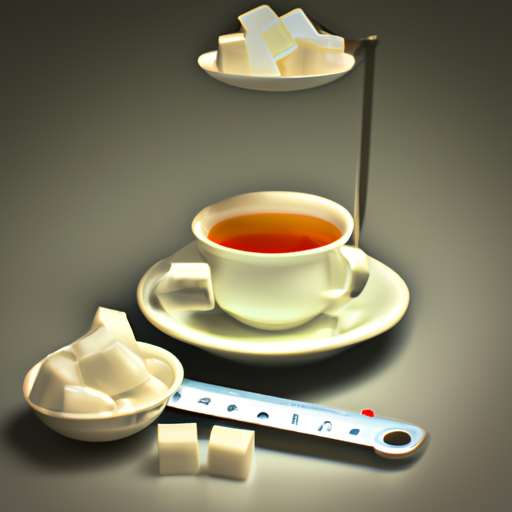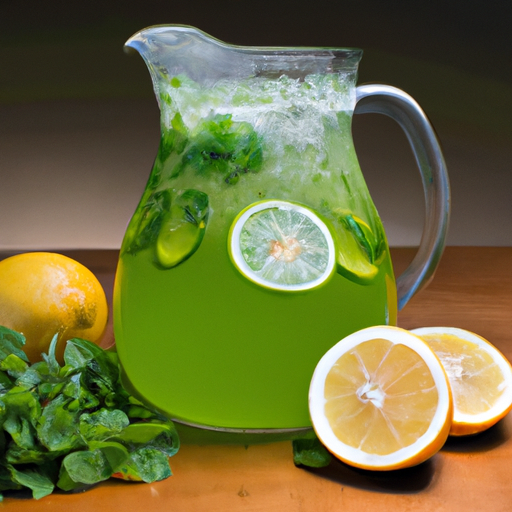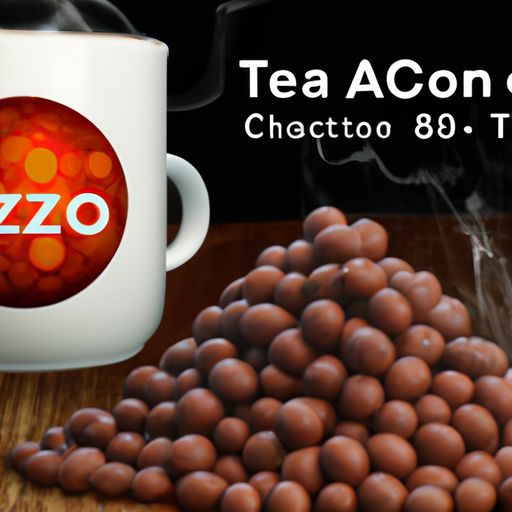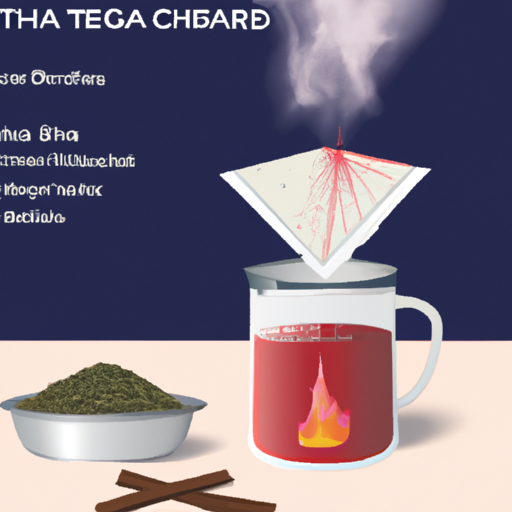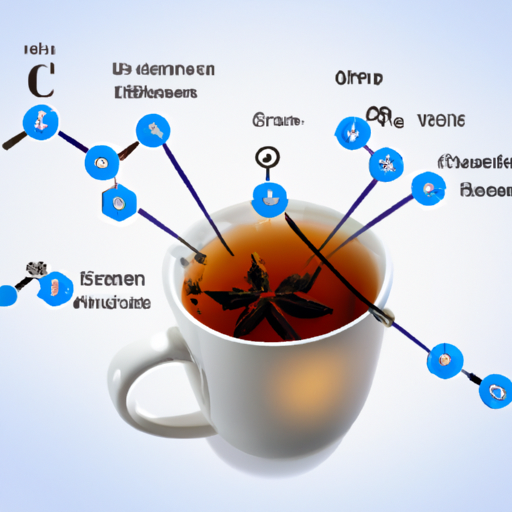As a fan of sipping on a hot chai tea, I frequently find myself pondering the sugar content in my preferred drink. Given the connections between sugar and various health problems, including obesity and diabetes, it’s crucial to keep tabs on how much we’re taking in.
In this article, I will explore the amount of sugar typically found in chai tea and its potential health effects.
Firstly, let’s define what chai tea is. Chai tea originated in India and is made by brewing black tea with a blend of spices such as cinnamon, cardamom, ginger, and cloves. This fragrant blend has become popular worldwide for its delicious flavor and warming properties. However, most people don’t realize that chai tea can contain a significant amount of added sugar.
In the following sections, we will examine how much sugar is usually present in chai tea and discuss healthier alternatives for those looking to reduce their sugar intake.
Key Takeaways
- Chai tea can contain a significant amount of added sugar, with a typical serving containing around 20-30 grams.
- Excessive sugar consumption is linked to obesity, heart disease, and diabetes, making it important to be mindful of the amount of sweetener added to chai tea.
- Healthier choices can be made by making homemade chai tea with natural ingredients and plant-based milk alternatives, and by monitoring sugar intake and reading food labels.
- Despite the potential health risks, chai tea also offers benefits such as anti-inflammatory spices, caffeine for energy, and potential weight loss benefits.
What is Chai Tea?
If you’re a fan of spiced tea, you’ve probably tried Chai Tea – it’s a deliciously aromatic and warming blend of black tea, ginger, cinnamon, cardamom, and cloves. This popular beverage originated in India and has been enjoyed for centuries as a way to warm up during cooler months or as an afternoon pick-me-up.
The name ‘chai’ actually means tea in Hindi, so ordering a chai tea is technically redundant. There are many different types of chai tea blends available today. Traditional chai typically includes the spices mentioned above along with black tea leaves steeped in milk and sweetened with sugar or honey. However, modern variations may include green or rooibos teas instead of black, almond milk instead of dairy milk, and added ingredients such as vanilla or nutmeg.
Each blend has its own unique flavor profile and can be enjoyed hot or cold depending on personal preference. Understanding sugar content in chai tea is important for those who want to manage their daily intake. While traditional recipes often call for generous amounts of sugar to balance out the spicy flavors of the spices used in making this drink, there are plenty of ways to enjoy it without adding extra sweetness.
By choosing unsweetened varieties or using alternative sweeteners like stevia or agave syrup, you can still indulge in the warmth and aroma that makes chai tea so special without worrying about your sugar intake.
Understanding Sugar
You might be surprised to learn just how sweet your favorite blend can actually be. Sugar consumption is something that most people don’t think about when sipping on their daily cup of chai tea. However, it’s important to understand the impact that sugar has on our health and well-being.
Here are a few things you should know about sugar consumption:
- The recommended daily intake of added sugars for adults is 6 teaspoons (24 grams) for women and 9 teaspoons (36 grams) for men.
- Consuming too much sugar can lead to a number of health problems, including obesity, diabetes, heart disease, and tooth decay.
- Many processed foods and beverages contain hidden sugars that can quickly add up throughout the day.
- Artificial sweeteners such as sucralose and aspartame are often used in place of sugar in diet drinks and snacks. While they may seem like a healthier alternative, studies have shown mixed results on their long-term effects.
- Natural substitutes such as honey or stevia can offer a sweeter taste without the negative effects of added sugars.
When it comes to chai tea specifically, there are many variations in terms of sweetness levels. In the next section, we’ll take a closer look at the amount of sugar typically found in different types of chai tea blends.
The Amount of Sugar in Chai Tea
Interestingly, various types of chai blends contain differing levels of sweetness. The sugar content in chai tea depends on the brewing methods used and the added ingredients. Some chai blends contain high amounts of sugar, while others are made with natural sweeteners such as honey or agave nectar.
In general, a typical serving of chai tea contains around 20-30 grams of sugar. The amount of sugar in chai tea also varies depending on the type of milk used to make it. Traditional Indian chai is made with whole milk, which contains lactose, a natural sugar found in milk. However, many modern variations use non-dairy milks like almond or coconut milk that have lower levels of naturally occurring sugars.
It is important to be mindful of the amount of sugar in your chai tea and choose blends with less added sugars or opt for natural sweeteners instead. Excessive consumption of sugary drinks has been linked to numerous health problems such as obesity, heart disease, and diabetes. Henceforth, it’s essential to keep the intake under control and minimize any potential risks associated with high-sugar beverages.
The Health Effects of Sugar
Are you aware of the potential health risks associated with consuming high amounts of added sweeteners in your beverages? From obesity to heart disease and diabetes, it’s important to be mindful of how much sugar we consume.
Sugar consumption has been linked to several chronic diseases, and a high intake of added sugars can lead to weight gain, insulin resistance, and inflammation. Moreover, consuming sugary drinks like chai tea can contribute to sugar addiction and make it difficult for individuals to control their cravings.
To reduce the risk of negative health effects associated with sugar consumption, it’s essential to be mindful of the amount of added sugars in your diet. Here are three reasons why:
- Consuming too much sugar can increase the risk of developing type 2 diabetes.
- High sugar intake contributes directly to obesity and weight gain.
- Sugary drinks like chai tea have been linked to an increased risk of cardiovascular disease.
It may seem challenging at first, but reducing your intake of sugary drinks like chai tea is possible with a little effort. Making healthier choices when it comes to what you drink is one step towards preventing chronic diseases associated with high sugar intake.
In the next section, I’ll provide tips for making healthier chai tea that will help you satisfy your taste buds without compromising your health.
Tips for Making Healthier Chai Tea
Get ready to indulge in a healthier version of your favorite warm beverage with these subtopic tips for making delicious chai tea.
Instead of using processed, sugary chai mixes, try brewing your own tea blend with cinnamon sticks, ginger root, cardamom pods, and other natural ingredients. You can also sweeten the tea with honey or maple syrup instead of refined sugar.
Another way to make your chai tea healthier is by using plant-based milk alternatives like almond milk or coconut milk instead of dairy. These choices are lower in calories and fat than regular cow’s milk while still adding a creamy texture to your drink. Plus, they’re vegan-friendly!
Lastly, be mindful of the amount of sweetener you add to your chai tea. You may think that adding more sugar will make it taste better, but it only adds unnecessary calories and negatively impacts your health. Start with less sweetener than what you typically use and gradually decrease it over time until you reach a point where you enjoy the flavor without adding too much sweetness.
Now that we’ve covered some tips for making healthier chai tea, let’s move on to how to read nutrition labels so you can make informed choices about what you’re putting into your body.
How to Read Nutrition Labels
To understand what you’re really consuming, take a closer look at nutrition labels – they are like a map that guides you through the ingredients and nutrients in your food. Reading food labels is an essential step towards making informed choices about what we eat. For those who want to monitor their sugar intake, it’s important to pay attention to the sugar content listed on the label.
When reading nutrition labels, it’s easy to get overwhelmed by all of the information presented. However, focusing on a few key areas can help you quickly determine if a product is right for you. First, check the serving size – this will tell you how much of the product constitutes one serving. Next, look at the total sugar content per serving and compare it to the recommended daily limit of 25 grams for women and 36 grams for men.
Here’s an example table that compares two popular brands of chai tea:
| Brand | Serving Size (oz) | Sugar Content (g) |
|---|---|---|
| A | 8 | 15 |
| B | 12 | 24 |
As you can see from this comparison, Brand B has significantly more sugar per serving than Brand A. By being aware of sugar content in products like chai tea, we can make more conscious choices about our health. In the next section, we’ll explore some healthier alternatives to traditional chai tea without sacrificing flavor or enjoyment.
Healthier Alternatives to Chai Tea
I’ve been drinking chai tea for a long time, but I’ve recently started to wonder if it’s actually good for me. So, I did some research and found out that there are healthier alternatives to traditional chai tea.
Additionally, I discovered that some studies suggest that chai tea can help with weight loss. If you’re interested in learning more about this topic, I’ll also be sharing an easy recipe on how to make homemade chai tea.
Is Chai Tea Good for You?
You might be wondering if chai tea is good for you, and the answer is that it can be! Chai tea is a flavorful beverage that has been enjoyed in India for centuries. It typically contains black tea, milk, spices like cinnamon and ginger, and sweeteners like honey or sugar.
Here are a few benefits and risks to consider when drinking chai:
-
Benefits:
-
The spices in chai tea have anti-inflammatory properties that can help boost your immune system.
-
Black tea contains caffeine, which can give you an energy boost.
-
Milk provides calcium and other nutrients that support bone health.
-
Risks:
-
Chai tea often contains added sugar, which can contribute to weight gain and increase the risk of developing chronic diseases like diabetes.
-
Some people may experience digestive issues due to the combination of milk and caffeine in chai tea.
Overall, there are both potential health benefits and risks associated with drinking chai tea. However, if you enjoy this delicious beverage but are concerned about its sugar content or other negative effects on your health, there are ways to modify it. In the next section, we’ll explore whether chai tea can help with weight loss.
Can Chai Tea Help with Weight Loss?
Sipping on a cup of chai is like adding fuel to your weight loss journey – it can boost metabolism and aid in digestion.
Chai tea contains ingredients such as ginger, cinnamon, and cardamom that are known to have a positive effect on metabolism. These spices help increase the body’s metabolic rate, allowing it to burn more calories throughout the day.
Additionally, studies have shown that drinking chai tea may help suppress appetite, making it easier to stick to a healthy eating plan.
But don’t rely solely on chai tea for weight loss. It should be used in conjunction with a balanced diet and regular exercise routine.
Now that you know how beneficial chai tea can be for your health, why not try making it at home? It’s easy and delicious!
How to Make Homemade Chai Tea?
To create your own homemade version of this delicious and beneficial beverage, all you need are a few simple ingredients and some patience. Start by making spice blends using cinnamon, cloves, cardamom, ginger, fennel seeds, and black pepper. You can adjust the amounts of each spice to your liking or use pre-made chai spice mixtures available in stores.
Next, choose your milk options. Traditional Indian chai uses whole milk but you can also use almond or soy milk for a vegan option. Heat the spices with water and milk in a pot until it comes to a boil, then lower the heat and let it simmer for about 10 minutes.
Strain out the spices and enjoy your homemade chai tea hot or cold! For further reading on different variations of homemade chai tea recipes or more information on its health benefits, check out reputable sources like Healthline or The Spruce Eats.
Sources and Further Reading
For more information on the amount of sugar in chai tea, check out these sources and recommended readings. The first source I recommend is a study published in the Journal of Food Science and Technology, which analyzed the sugar content of commercially available chai teas. The study found that on average, a 250 ml serving of chai tea contained 20 grams of sugar. This is equivalent to around five teaspoons of granulated sugar.
If you’re looking for ways to reduce the amount of sugar in your chai tea, there are several options available. One approach is to use natural sweeteners such as honey or maple syrup instead of refined white sugar. Another option is to try using sugar substitutes such as stevia or monk fruit extract. These alternatives can provide sweetness without adding calories or raising blood sugar levels.
It’s worth noting that there are also many homemade chai tea recipes available online that allow you to control the amount of sweetener used. By making your own chai tea, you can experiment with different types and amounts of sweeteners until you find a recipe that works for you. In summary, while commercial chai teas may contain high levels of added sugars, there are plenty of options available for those looking to reduce their intake or experiment with alternative sweeteners.
Frequently Asked Questions
What are the different types of chai tea available?
As someone who enjoys a good cup of chai tea, I can tell you that there are many spiced varieties available.
Some popular types include masala chai, which typically includes cinnamon, cardamom, and ginger, and Kashmiri chai, which incorporates saffron and almonds. Other variations may include cloves, fennel seeds, or black pepper.
When it comes to brewing techniques, some people prefer to steep their tea bags in hot milk for a creamier texture while others opt for boiling water. Ultimately, the type of chai tea you choose and how you brew it is up to personal preference.
Can chai tea be made without sugar?
Yes, chai tea can certainly be made without sugar. In fact, there are many sugar alternatives that work well in chai tea.
Some popular options include honey, maple syrup, stevia, and agave nectar. Not only do these alternatives add sweetness to the tea without adding calories like sugar does, but they also have some potential health benefits.
For example, honey has antibacterial properties and can help soothe a sore throat. Stevia is a natural sweetener that may help lower blood pressure and blood sugar levels.
So if you want to enjoy the delicious taste of chai tea without consuming too much sugar or any at all, try experimenting with one of these alternatives!
Is there a recommended daily intake of sugar?
Did you know that the average American consumes nearly 17 teaspoons of added sugar per day? That’s more than double the recommended daily intake for women and almost triple the recommendation for men.
Excessive sugar consumption can lead to a host of health problems, including obesity, type 2 diabetes, and heart disease. It’s important to be mindful of our sugar intake and look for sugar-free alternatives whenever possible.
While it may seem difficult to cut back on sugar at first, there are plenty of delicious options out there that don’t rely on added sugars. So next time you’re reaching for a sweet treat or thinking about adding sugar to your chai tea, consider the impact it could have on your overall health and try something new instead!
Are there any natural sweeteners that can be used in chai tea?
There are a few natural sweeteners that can be used as alternatives to honey in chai tea. Stevia is a popular option because it’s 200 times sweeter than sugar but has zero calories, making it a great alternative for those watching their weight.
Other options include maple syrup, agave nectar, and coconut sugar. Each of these options has its own unique flavor profile and nutritional benefits, so it’s important to find the one that works best for your taste preferences and dietary needs.
Overall, there are plenty of ways to enjoy the sweetness of chai tea without relying on traditional sugars or artificial sweeteners.
How does the amount of sugar in chai tea compare to other popular drinks?
When comparing the sugar content of chai tea to other popular drinks, it’s important to note that there is a wide range of variation.
For example, a can of Coca-Cola contains around 39 grams of sugar, while a bottle of Gatorade has about 21 grams.
In contrast, a typical serving size of chai tea may contain anywhere from 0-10 grams depending on how it’s prepared and sweetened.
Of course, the health implications depend on many factors beyond just sugar content, such as overall calorie intake and individual dietary needs.
However, opting for less sugary options like unsweetened or lightly sweetened chai tea can be a good way to reduce added sugars in your diet and potentially improve your overall health.
Conclusion
So, you’ve probably wondered how much sugar is in chai tea. As someone who loves a good cup of chai, I was curious to learn more about its potential health effects. It’s true that chai tea can contain a significant amount of sugar, but there are ways to make healthier versions at home and read nutrition labels carefully when purchasing pre-made options.
It’s important to remember that moderation is key when it comes to consuming sugar. While indulging in a sweet treat every once in a while is okay, consistently consuming high amounts of added sugars can lead to negative health consequences. By being mindful about our consumption and making informed choices, we can enjoy our favorite beverages without sacrificing our well-being.

